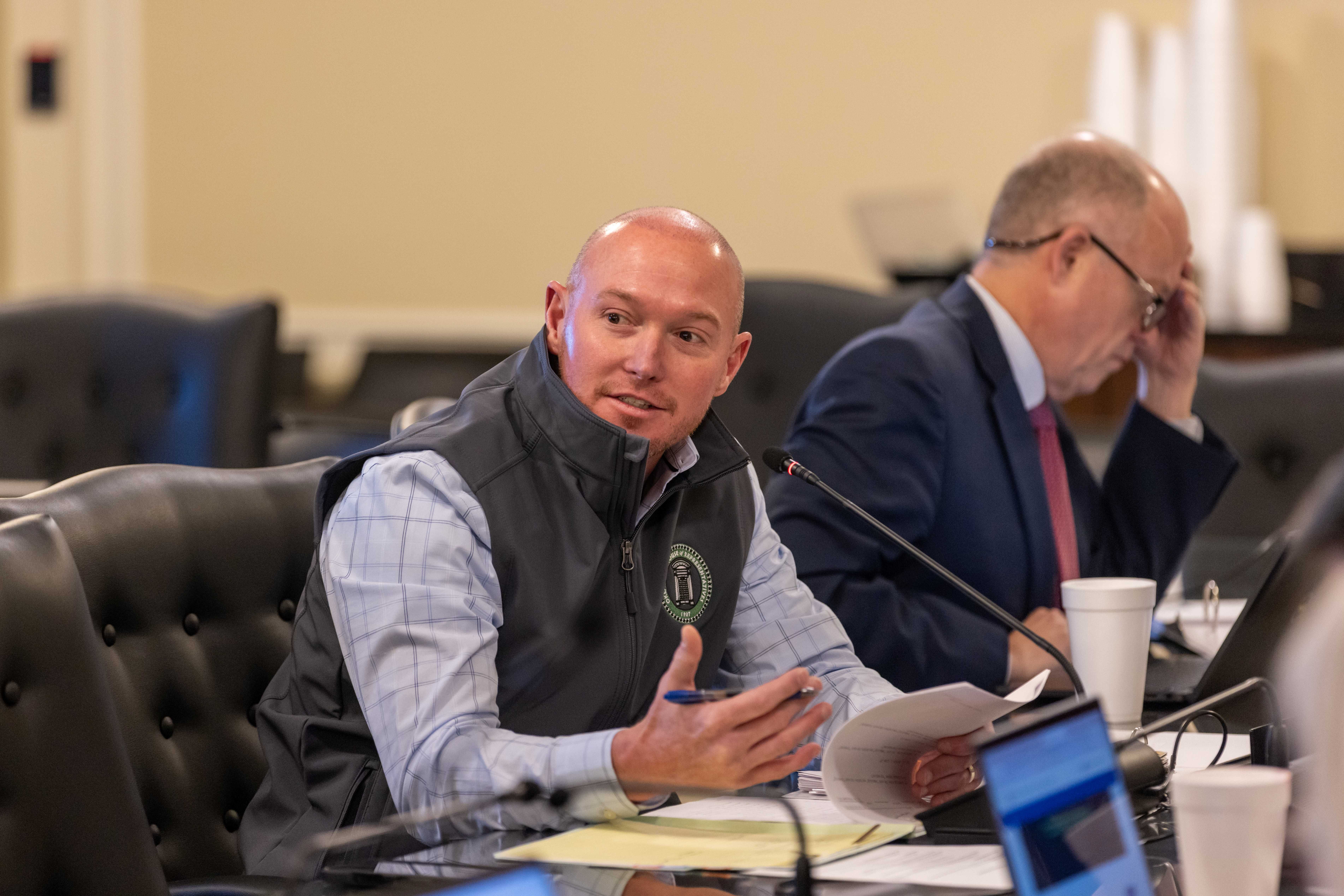Marti, Kern Study Impact of Pharmacy Benefit Managers on Oklahoma Patients and Pharmacies

OKLAHOMA CITY – Rep. T.J. Marti, R-Broken Arrow, and Sen. Spencer Kern, R-Duncan, hosted an interim study Monday examining the role of pharmacy benefit managers (PBMs)in Oklahoma’s health care system and how their practices affect patient access, local pharmacies, and state health care costs.
"I’ve seen firsthand how PBM practices can harm both patients and independent pharmacies," Marti said. "Our goal is to ensure every Oklahoman receives fair pricing and quality care while protecting the local pharmacies that keep our communities healthy."
Experts testified about the financial pressures PBMs place on community pharmacies and the complexity of the drug supply chain. Jonathan Buxton of the Pharmaceutical Care Management Association said PBMs aim to maintain pharmacy access while controlling costs for plan sponsors. However, several witnesses noted that pharmacies are often reimbursed below acquisition costs, threatening their long-term viability and patient access, especially in rural areas.
Marti expressed concern over the continued decline of community pharmacies and questioned whether PBMs are ensuring fair reimbursement rates to keep them sustainable.
Antonio Ciaccia, CEO of 46Brooklyn Research and 3 Axis Advisors, said nearly every participant in the drug supply chain, from manufacturers to PBMs, has financial incentives that can obscure transparency and drive up prices.
Independent pharmacists shared firsthand challenges. Todd Pendergraft, co-owner of Broken Arrow Family Drug Stores, reported nearly $30,000 in underpayments on workers’ compensation prescriptions last year and described PBMs steering patients to PBM-owned pharmacies.
Lucas Coody, PharmD, Director of Government Affairs at AlignRx, said the burdensome and ever-changing PBM appeals process, combined with disregard for Oklahoma statutes, often causes pharmacies to abandon reimbursement disputes altogether.
Scott Biggs, Commissioner of the Oklahoma Workers’ Compensation Commission, explained that while his agency enforces maximum reimbursement rates, PBMs are regulated by the Attorney General’s Office and the Insurance Department. Michael Leake, Deputy Attorney General and Director, PBM Compliance and Enforcement Unit, said enforcement actions have recovered $32 million for the state health plan and made Oklahoma a national leader in PBM oversight and transparency.
Kern said the findings highlight the need for stronger regulation. "PBMs play an important role, but we cannot allow practices that harm our state budget or limit patient access to essential medications."
Marti thanked participants for their testimony and announced plans to pursue PBM reform legislation in the 2026 session to ensure fair treatment for both pharmacies and patients statewide.
The Second Regular Session of the 60th Oklahoma Legislature will convene on Feb. 2, 2026.
